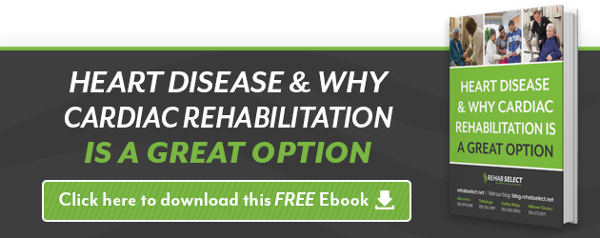
Have you heard the term “acute myocardial infarction”? It’s actually medical terminology for what is commonly known as a heart attack. This cardiovascular event occurs when one of the coronary arteries, which supply blood to the heart, becomes blocked, causing blood flow to the heart to be suddenly cut off or critically reduced. This can lead to tissue damage in the heart that can result in significant impairment of heart function or death.
According to Harvard Medical School, “The usual cause of sudden blockage in a coronary artery is the formation of a blood clot (thrombus). The blood clot typically forms inside a coronary artery that already has been narrowed by atherosclerosis, a condition in which fatty deposits (plaques) build up along the inside walls of blood vessels.” Typically, myocardial infarction, or heart attack, happens when a blood clot blocks one of those already restricted arteries, inhibiting the flow of blood. More rarely, the trigger can be a spasm in the coronary artery, temporarily blocking blood flow.
What Is MI (Myocardial Infarction) and How Is it Different from Cardiac Arrest?
One common source of confusion is the difference between a myocardial infarction (heart attack) and cardiac arrest. Medical experts define a heart attack as damage to part of the heart muscle caused by inadequate blood flow to that area.
However, as Harvard Health states, “While a heart attack is a plumbing problem, a cardiac arrest is an electrical problem. Cardiac arrest happens when the heart's electrical system malfunctions, causing it to beat rapidly and chaotically — or to stop beating altogether.” It’s important to understand the distinction and also know the signs of cardiac arrest.
Risk Factors for a Heart Attack
Some risk factors that may make individuals more susceptible to acute myocardial infarction are controllable. The American Heart Association provides this breakdown:
Traditional risk factors for heart attack include:
-
Smoking
-
High blood pressure
-
High cholesterol
-
Diabetes
-
Overweight or obesity
Risk-enhancing factors include:
-
Family history of early atherosclerotic cardiovascular disease (men less than 55 years old, women less than 65 years old)
-
High cholesterol (LDL-C 160-189 mg/dL; non-HDL-C 190-219 mg/dL)
-
Metabolic syndrome
-
Chronic kidney disease
-
Chronic inflammatory conditions (e.g., rheumatoid arthritis, psoriasis, HIV/AIDS)
-
History of preeclampsia or early menopause
-
High-risk ethnicity (e.g., South Asian ancestry)
-
Higher than normal triglycerides (175 mg/dL or higher), ankle-brachial index (ABI), and other lab tests
Signs of a Heart Attack
Don’t delay in seeking medical help if you experience any warning signs of acute myocardial infarction. According to the American Heart Association, some heart attacks are sudden and intense, but others start slowly, with mild pain or discomfort. Pay attention to your body and call 911 if you experience any signs.
Keep in mind, however, that symptoms of acute myocardial infarction vary. Some people have mild symptoms. Others have severe symptoms. Some people have no symptoms. According to the Mayo Clinic, Symptoms of a heart attack vary. Some people have mild symptoms. Others have severe symptoms. Some people have no symptoms.
Common heart attack symptoms include:
-
Chest pain that may feel like pressure, tightness, pain, squeezing or aching
-
Pain or discomfort that spreads to the shoulder, arm, back, neck, jaw, teeth or sometimes the upper belly
-
Cold sweat
-
Fatigue
-
Heartburn or indigestion
-
Lightheadedness or sudden dizziness
-
Nausea
-
Shortness of breath
-
Women may have atypical symptoms such as brief or sharp pain felt in the neck, arm, or back. Sometimes, the first symptom sign of a heart attack is sudden cardiac arrest. Anyone experiencing symptoms of acute myocardial infarction or signs of cardiac arrest, should seek emergency medical attention immediately, since early treatment provides the best opportunity to minimize permanent damage to the heart muscle.
Heart Attack Prevention
If you have not yet suffered a heart attack, knowing your personal risk factors is the first step in effective prevention. A visit to your doctor for an exam and a few health screening tests to measure blood pressure, blood sugar, cholesterol, and triglyceride levels, among other factors, are the best ways to identify those risk factors.
While some factors, like a family history of acute myocardial infarction, cannot be controlled, taking action to reduce lifestyle-related risk factors – such as quitting smoking, losing weight, exercising more, and learning about and following a heart-healthy diet – can significantly reduce overall risk. Working closely with your healthcare team to control health conditions that increase risk, such as high blood pressure, high cholesterol, and diabetes, is also vital to prevention.
Find Cardiac Rehab in Alabama
Often, a cardiac rehab program is the first step in recovery from acute myocardial infarction. If you have already experienced a heart attack, participating in cardiac rehab can help to reduce your risk of another such incident and, in many cases, lead to a very successful recovery by working closely with your healthcare team. At our five Alabama locations, our experienced healthcare professionals supervise patients as they regain strength and educate them on lifestyle strategies for improving cardiovascular health.
At Rehab Select, you can expect that any treatment you receive is personalized and unique. Our team of cardiac rehab specialists—including doctors, nurses, PTs, OTs, dietitians, and mental health providers—will get to know you and your individual situation to outline a personalized plan. To learn more or schedule a tour of our facilities, contact us today.





